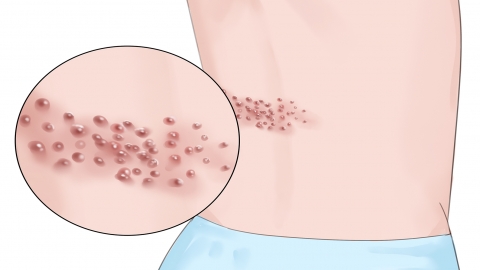Is a herpes virus infection serious?
Generally, the severity of a herpes virus infection needs to be determined based on specific infection details, the patient's immune status, and complications. If experiencing symptoms such as persistent fever, rash spreading, or neurological symptoms, prompt medical attention is advised. Detailed analysis is as follows:

If the infection is caused by common herpes simplex virus type 1 (HSV-1), and the patient has a normal immune function with only localized mild blisters, itching, or pain, and no other systemic discomfort, this type of infection is usually not severe. Symptoms typically resolve spontaneously within 1–2 weeks and complications are uncommon with appropriate care, resulting in minimal impact on daily life.
If the infection is due to disseminated varicella caused by varicella-zoster virus, or severe genital herpes caused by herpes simplex virus type 2 (HSV-2), particularly in infants, elderly individuals, or those with weakened immune systems, it may be accompanied by high fever, generalized rash, organ involvement, and even complications such as encephalitis or pneumonia. These infections are considered more severe, and failure to seek timely treatment may affect recovery and increase subsequent risks.
After developing symptoms of herpes virus infection, timely medical consultation is necessary to identify the infection type and avoid treatment delay. Keep the affected area clean and dry in daily life, and avoid scratching to prevent secondary bacterial infection. Individuals with weakened immune systems should closely monitor physical changes and complete treatment as directed by a physician. Spicy and irritating foods should be avoided during treatment, and maintaining regular rest helps promote recovery.









